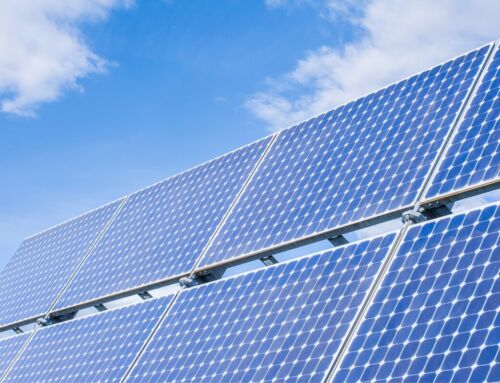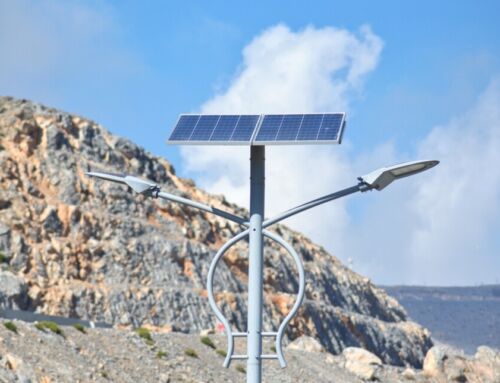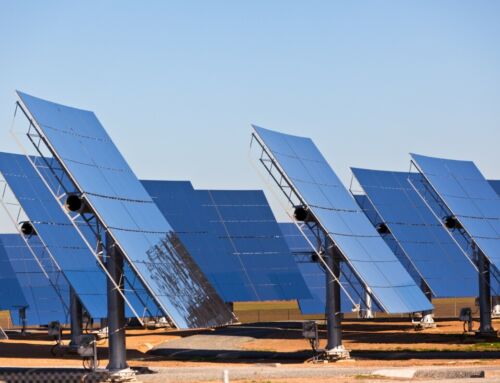What Are the Pros and Cons of Solar Energy Clearly Explained
What are the pros and cons of solar energy is a common question among homeowners, businesses, and environmentalists considering the shift to renewable energy. Solar power has been steadily gaining popularity in the United States due to its ability to lower utility bills and reduce carbon emissions. But like any technology or investment, solar energy comes with both advantages and limitations.
In this article, we will explore the major benefits and drawbacks of solar energy in a realistic, balanced, and in-depth way. Whether you’re looking to install rooftop solar panels for your home, set up solar for your commercial property, or just want to understand how solar fits into the national energy conversation, this guide provides a complete breakdown of the key pros and cons.
What Is Solar Energy
Solar energy is energy harnessed from the sun’s radiation. This energy is captured using solar panels that convert sunlight into electricity using photovoltaic (PV) cells. In the U.S., solar energy is commonly used in residential, commercial, and industrial settings, and it’s also a key part of the nation’s push toward clean energy and carbon neutrality.
There are two primary ways solar energy is used:
-
Photovoltaic (PV) Systems: Convert sunlight directly into electricity using solar panels.
-
Solar Thermal Systems: Use sunlight to heat fluid or air for residential or industrial purposes.
Solar energy can be used in grid-tied systems (connected to the utility grid) or off-grid systems (independent and often used with battery storage).
Pros of Solar Energy
Let’s explore the advantages that make solar energy such a compelling option.
1. Reduces Electricity Bills
One of the biggest reasons homeowners and businesses turn to solar energy is the cost savings. Once installed, solar panels can significantly lower or even eliminate your electric bills. In sunny states like California, Texas, and Arizona, solar users can reduce utility costs by 60% or more over time.
If you install a system large enough to meet all your energy needs, you may generate excess electricity that can be sold back to the grid in many areas through net metering programs.
2. Renewable and Sustainable Energy Source
Solar energy is a clean, renewable energy source. Unlike fossil fuels, which are finite and emit carbon when burned, solar energy doesn’t pollute or deplete natural resources. The sun will continue to shine for billions of years, making solar power a stable long-term energy option.
3. Environmentally Friendly
Solar energy significantly reduces your carbon footprint. Producing electricity from solar panels emits no greenhouse gases, air pollutants, or water contaminants. This benefit is especially important for environmentally conscious homeowners and businesses trying to reduce their impact on climate change.
4. Increases Property Value
Homes equipped with solar systems are often more attractive to buyers. Several U.S. studies show that homes with solar panels sell faster and at a premium. On average, solar-equipped homes sell for 4–7% more than comparable non-solar homes, depending on the region and local electricity prices.
5. Eligible for Tax Credits and Incentives
The U.S. federal government offers a Solar Investment Tax Credit (ITC), which allows homeowners and businesses to deduct a portion of solar installation costs from their federal taxes. Many states and utility companies also offer rebates, grants, or performance-based incentives that make solar installation more affordable.
As of 2025, the federal tax credit covers 30% of eligible costs for residential solar systems.
6. Low Maintenance Requirements
Once installed, solar systems require minimal maintenance. Most solar panels are durable, with warranties of 20 to 25 years. Occasional cleaning and an annual inspection are typically enough to keep a system running efficiently.
Inverters and batteries (if included) may need servicing every 5–10 years, but overall, maintenance costs are much lower compared to traditional energy systems.
7. Energy Independence
Installing solar energy reduces your reliance on utility companies and imported fossil fuels. With solar battery systems, you can store electricity for use during grid outages, providing greater energy security and peace of mind—especially in disaster-prone areas.
8. Supports Job Growth and Economy
The solar industry has become a major contributor to the U.S. economy. According to the Solar Energy Industries Association (SEIA), more than 250,000 Americans are employed in the solar sector, and demand is expected to grow as more states commit to clean energy goals.
Cons of Solar Energy
While the benefits are numerous, there are also valid drawbacks to consider before going solar.
1. High Upfront Costs
The initial cost of solar panel installation is the biggest barrier for many people. Though prices have dropped significantly over the past decade, installing a typical home system in the U.S. still costs between $15,000 and $30,000 before incentives.
Battery storage systems, which are becoming increasingly popular, can add another $8,000 to $15,000 to the total cost.
2. Weather Dependent
Solar panels rely on sunlight to generate power. While they still work on cloudy or rainy days, output is significantly lower. In areas with long winters or frequent overcast weather, solar systems may require supplemental power from the grid or storage systems.
3. Requires Roof Space and Proper Orientation
Solar panels need sufficient space and proper orientation to be effective. Homes with shaded roofs, unusual angles, or limited space may not be ideal for rooftop systems. While ground-mounted systems are an option, they require extra land and installation effort.
4. Energy Storage Is Expensive
Solar panels generate power during the day, but homes use electricity around the clock. To use solar power at night or during outages, you need battery storage. However, high costs make batteries financially out of reach for some homeowners. Until battery prices drop further, grid dependence is often still necessary.
5. Manufacturing and Disposal Impact
Although solar energy is clean during use, manufacturing solar panels involves the use of chemicals, energy, and rare materials. Improper disposal of old panels can also create waste problems. However, recycling initiatives and improved panel designs are helping reduce these impacts.
6. Installation Can Be Complex
Installing solar panels requires professional expertise, local permits, and inspections. The process can take several weeks or even months from signing a contract to system activation. Dealing with local utilities and navigating incentives can add to the complexity.
7. Decreasing Incentives Over Time
While tax credits and rebates currently reduce the cost of solar systems, many of these incentives are scheduled to phase out or decrease over the next decade. Homeowners who wait too long may miss out on financial support, making future systems less affordable.

Ready to take the next step? Discover how solar energy can elevate your home and reduce those energy bills. Request a Free Solar Estimate at NEW SOLAR QUOTE
Table: Summary of Pros and Cons of Solar Energy
| Pros | Cons |
|---|---|
| Lowers electricity bills | High initial installation cost |
| Environmentally friendly | Weather-dependent performance |
| Renewable energy source | Requires suitable roof space |
| Increases property value | Energy storage adds extra cost |
| Tax incentives available | Installation process can be complex |
| Low maintenance requirements | Manufacturing has environmental footprint |
| Promotes energy independence | Incentives may decrease in future |
When Is Solar Energy a Good Option
Solar energy is ideal in the following situations:
-
High electricity costs: If you live in a state with expensive utility rates, solar can pay for itself faster.
-
Sunny climate: Homes in areas like California, Nevada, Texas, and Florida can generate more solar power year-round.
-
Long-term homeownership: If you plan to stay in your home for 10+ years, you can recoup your investment and benefit from energy savings.
-
Access to incentives: If your state or utility offers rebates or tax credits, it makes solar more cost-effective.
-
Interest in sustainability: If reducing carbon footprint is important to you, solar is among the cleanest energy options available.
Who Might Not Benefit from Solar
Solar may not be suitable for:
-
Renters or short-term homeowners who can’t benefit from long-term savings.
-
Homes with shaded or north-facing roofs, which may have poor solar exposure.
-
Low utility bill households, where savings might not justify installation cost.
-
Regions with harsh winters and limited sun during key months.
FAQs About the Pros and Cons of Solar Energy
Is solar energy really worth it in the long run?
Yes, for most U.S. homeowners, solar pays for itself within 6–10 years and continues producing free energy for 20+ years.
What are the financial drawbacks of solar energy?
The main financial con is the high upfront installation cost. While incentives help reduce it, not everyone can afford the initial payment or qualify for financing.
Does solar energy work during power outages?
Only systems with battery storage or specially configured backup systems will operate during grid outages. Standard grid-tied systems shut off for safety.
Are there environmental downsides to solar panels?
While cleaner than fossil fuels, manufacturing panels does create emissions and waste. Efforts to improve recycling and production efficiency are ongoing.
How do I know if solar is right for my home?
Evaluate your sun exposure, electricity usage, local costs, and incentive programs. A solar installer can provide a detailed analysis based on your address.
Final Thoughts on What Are the Pros and Cons of Solar Energy
What are the pros and cons of solar energy is a crucial question to answer before investing in solar. While the advantages—cost savings, environmental impact, and energy independence—are significant, there are valid concerns regarding upfront costs, installation logistics, and intermittent performance. Every home and business has different needs, and the best decision depends on your energy goals, finances, and property characteristics.
By understanding both sides of the equation, you can make an informed decision that balances sustainability with practicality. With careful planning and proper guidance, solar energy can be a powerful tool in your effort to reduce expenses and contribute to a cleaner planet.
Switch to solar and start saving now! Don’t miss out on a cleaner, cost-effective energy solution. Schedule Your Free Consultation at NewSolar QuotesDiscover more ways to save with solar! Visit New Solar Quote and see the potential for your home.






